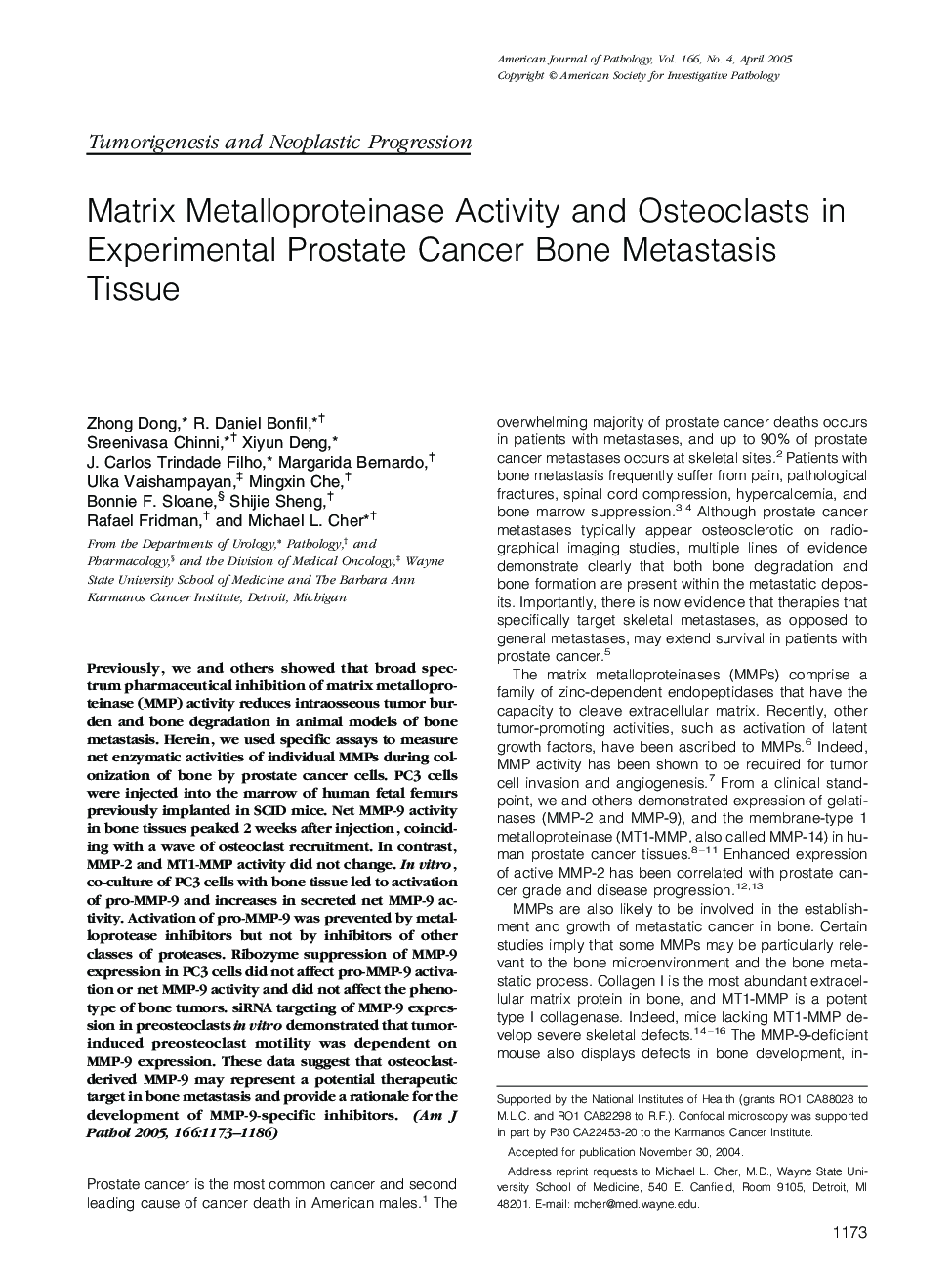| Article ID | Journal | Published Year | Pages | File Type |
|---|---|---|---|---|
| 9943414 | The American Journal of Pathology | 2005 | 14 Pages |
Abstract
Previously, we and others showed that broad spectrum pharmaceutical inhibition of matrix metalloproteinase (MMP) activity reduces intraosseous tumor burden and bone degradation in animal models of bone metastasis. Herein, we used specific assays to measure net enzymatic activities of individual MMPs during colonization of bone by prostate cancer cells. PC3 cells were injected into the marrow of human fetal femurs previously implanted in SCID mice. Net MMP-9 activity in bone tissues peaked 2 weeks after injection, coinciding with a wave of osteoclast recruitment. In contrast, MMP-2 and MT1-MMP activity did not change. In vitro, co-culture of PC3 cells with bone tissue led to activation of pro-MMP-9 and increases in secreted net MMP-9 activity. Activation of pro-MMP-9 was prevented by metalloprotease inhibitors but not by inhibitors of other classes of proteases. Ribozyme suppression of MMP-9 expression in PC3 cells did not affect pro-MMP-9 activation or net MMP-9 activity and did not affect the phenotype of bone tumors. siRNA targeting of MMP-9 expression in preosteoclasts in vitro demonstrated that tumor-induced preosteoclast motility was dependent on MMP-9 expression. These data suggest that osteoclast-derived MMP-9 may represent a potential therapeutic target in bone metastasis and provide a rationale for the development of MMP-9-specific inhibitors.
Related Topics
Health Sciences
Medicine and Dentistry
Cardiology and Cardiovascular Medicine
Authors
Zhong Dong, R. Daniel Bonfil, Sreenivasa Chinni, Xiyun Deng, J. Carlos Trindade Filho, Margarida Bernardo, Ulka Vaishampayan, Mingxin Che, Bonnie F. Sloane, Shijie Sheng, Rafael Fridman, Michael L. Cher,
